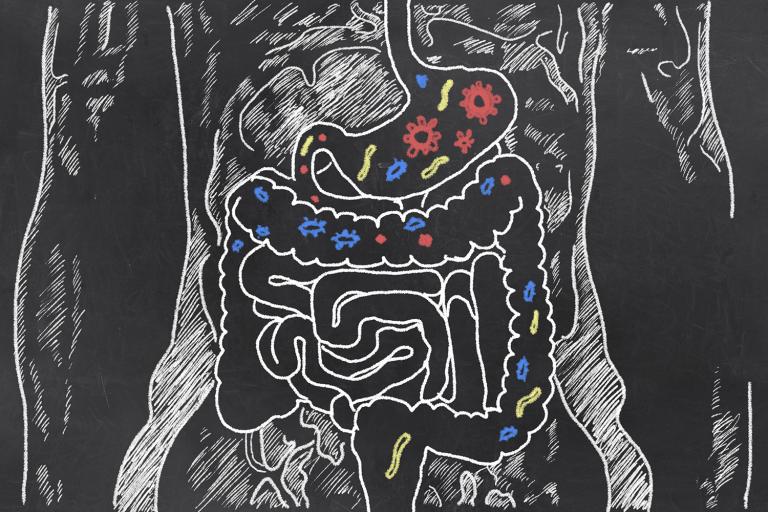Probiotics Support Digestion and More!
Probiotics–otherwise known as friendly bacteria–support a healthy body in many ways. These bacteria live in your GI tract, and offer a surprising number of benefits to their host organism, meaning you.
These “good guy” types keep away harmful forms of bacteria, which, if they were allowed to proliferate, could cause numerous illnesses.
These beneficial bacteria even assist in getting the nutrients from your gut to your bloodstream, where your body can most benefit from them.
Probiotics also serve as little vitamin factories: when probiotic bacteria live abundantly in your gut, they pump out vitamin K as well as some of the most important B vitamins.
Probiotics play a large role in a strong immune system. An even more underappreciated area of probiotic benefit is that of mental health, according to personal trainer JJ Flizanes, director of Invisible Fitness.
“Your gut actually produces a lot of neurotransmitter type chemicals such as serotonin, which is why probiotics can help you experience better moods,” she said.
Get Cultured
If these bacteria are so important, why is it only recently that they’ve made their way into supplement bottles?
“Probiotic bottles weren’t on any shelves 30 years ago because most people got these bacteria from cultured foods in their diet, such as yogurt and sauerkraut,” Flizanes said.
A quick look around the world shows that cultured foods were developed in every corner. One of the drivers of cultured foods is that cultured vegetables, dairy products, and even fish can be stored far longer than their noncultured counterparts (something that was very important prior to refrigeration).
If cultured foods are not a significant part of your diet, then you might want to consider a probiotic supplement to make up the difference.
“One of the biggest bacterial species that we know to be effective is Lactobacillus acidophilus,” Filzanes said. “It is a very effective strain of beneficial bacteria that works to help improve your immune system. Bifidobacteria, another excellent strain, also strengthens immune response.”
“Consider paying the little extra money to make sure the probiotic you buy is acid- and bile-resistant,” Flizanes said, “so that it actually survives through the first stage of digestion, which is getting past the strong acid of the stomach.”
Feed Your Bugs
Don’t overlook prebiotics. The probiotics you already have in your body can grow into larger colonies if you eat foods known as prebiotics—nutrients that probiotic bacteria love.
Key prebiotics include fibers called inulins and fructooligosaccharides, which are found in foods such as bananas, artichokes, and sunchokes.
“You can also get prebiotics from raw and cooked onions, raw garlic, raw leeks, raw dandelion greens, raw asparagus, and raw chicory root,” Flizanes said.
Whether it’s from cultured foods, a bottle of probiotic bacteria, or feeding your gut’s own resident healthy bacteria, it’s a good idea to support the healthful bugs living in your GI tract.
Label Literacy
The sea of probiotic choices in the supplement aisle can be overwhelming. Sylvia Laman, a toxicologist with the third-party product tester NSF International, has a few tips to make your selection easier.
- Any probiotic supplement you’re considering should carry a detailed label stating what the product contains: from genus down to species, then down to the exact strain of bacteria that’s in the bottle.
- Check that the product states the bacteria quantity, which is listed as colony forming units (CFU).
- Laman recommends consumers consider buying probiotic supplements from manufacturers “committed to verifying the identity and safety of probiotic ingredients, such as products that are tested and verified by a third party such as NSF International.”

